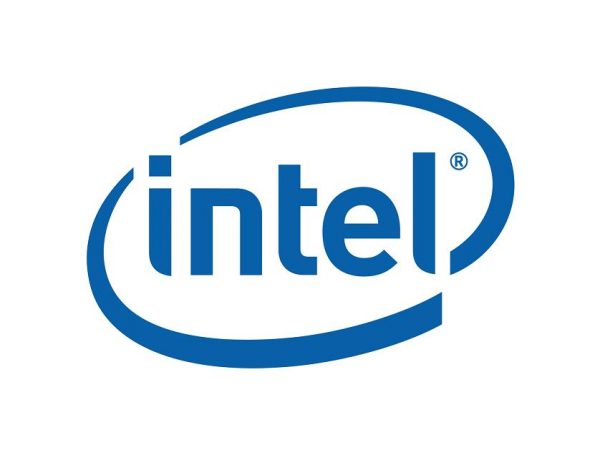Lest you thought Toys R Us was the only business with bad news featured on our blog this week, things are not going well for another company whose name you know; namely, Intel. In the PC space, Intel has only one competitor, Advanced Micro Devices (AMD). However, in recent years they have faced pressure from the smartphone/portable devices segment of consumer devices.
Previously, we have documented the Windows on ARM initiative which is finally appearing in the consumer space. While Microsoft has yet to get all the bugs worked out of the process, you can now buy devices free of Intel chips that run a full version of Windows 10. The cell phone CPU chips are not quite up to the processing power of Intel’s but these devices can last up to a week on a full charge and unlike Intel’s they can maintain a connection to cellular data and resume from sleep in less than a blink of an eye.
In addition, this year you are seeing a new feature implemented by tech companies across devices that allows you to continue a document or game from one device to another. Here are some things you can or will shortly be able to do:
• Playing a game on your phone, you will be able to pause it, resume it on your tablet device and pause it and resume playing it on your desktop device.
• Working on a document, you can cut or copy to the clipboard on your PC and the paste it into you phone’s text message or tablet’s email.
Device platforms are moving to an always connected to the Internet model. This will allow for seamless operating of many tasks that you do daily.
Also companies like Microsoft are enabling personal devices to be integrated with Enterprise networks so you can use the same phone or tablet to do both your work stuff and your own stuff. If your company’s IT staff is worth a darn then folks on the go don’t need to carry two phones, one for work and one for them.
This week it was announced that Microsoft is not the only company trying to get free of the decades old Intel monopoly, Apple announced that they are abandoning Intel all together and will run all their devices including desktop PCs with cell phone CPUs.
04-02-2018
Apple copies Microsoft, moves to abandon IntelApple has delivered a shock to Intel’s share price with news of a new project to move their Mac business to ARM-based processors of their own design by 2020.
According to Bloomberg, Project Kalamata would have all Apple’s devices, from iPhones to Macs, running on the low power processors, and would rely on Marzipan, a platform which lets iOS apps run on the Mac desktop.
The move would emulate that of Microsoft, who has already launched their Windows 10 on ARM initiative with two 3rd party laptops already in the market, and who has been working for many years on their UWP platform, which unifies mobile and desktop applications.

Two days later, Intel got another blow from Microsoft when they announced that the new version of their virtual reality device—HoloLens—will be using ARM chips and not those made by Intel.
04-04-2018
Hololens 2.0 may ditch Intel for ARM processorCompetition for the Microsoft Hololens is finally close to reaching the market, with the Magic Leap’s headset expected to reach virtual shelves later this year.
This seems to have prompted the company to finally get around to releasing version 2 of the headset, according to a leak via the WC.
According to their sources, the headset will use Microsoft’s Always-Connected PC platform, with an ARM processor with LTE modem, have longer battery life and greater autonomy, and would also have an increased field of view.
Folks we are approaching the world of Ready Player One—at least in some respects—and Intel has no part of it. They are becoming a legacy company that has totally missed the boat on computing! Let that sink in, the biggest computer processor manufacturing company in the world has no part in the future of their own industry.

Please understand that Intel has spent billions of dollars trying to get into the mobile space but failed at every turn. They actually make Paul Ryan and Mitch McConnell look like geniuses and that is really hard to accomplish. While I’m reluctant to say so, Aaron Park’s favorite phrase of “epic failure” is actually appropriate in this case.
Intel quit trying to get into the mobile device CPU business two years ago and look where they are now.
05-03-2016
Intel’s new smartphone strategy is to quitLate on Friday night, Intel snuck out the news that it’s bailing on the smartphone market. Despite being the world’s best known processor maker, Intel was only a bit player in the mobile space dominated by Qualcomm, Apple, and Samsung, and it finally chose to cut its losses and cancel its next planned chip, Broxton. This followed downbeat quarterly earnings, 12,000 job cuts, and a major restructuring at a company that’s had a very busy April. Intel is still one of the giants of the global tech industry, but it’s no longer as healthy and sprightly as it used to be.
The bane of Intel’s existence for the past decade or so has been the transition to mobile computing. It wasn’t supposed to be that way. Having secured a commanding lead as the premier provider of desktop PC processors, Intel had a clear-eyed strategy for extending its dominance into the mobile realm.
This has cost Intel dearly, with the company lavishing billions on developing suitable processors and modems to put into its various mobile undertakings. The multibillion-dollar mobile costs have spiraled in recent years — a loss of $3.1 billion in 2013 was followed by a loss of $4.3 billion in 2014 — which eventually forced Intel to combine its mobile and PC earnings reports in order to disguise its unproductive spending.
The tragedy of Intel’s mobile failure is that the company foresaw all the threats to its business and acted to preempt them. It just didn’t do so very well. That being said, Intel’s the victim of its bad decision making almost as much as its poor execution.
05-01-2016
Intel Cancels Atom Processor, Could Exit Mobile IndustryWhile Intel appears to be continuing to dominate the desktop and laptop market with their processors, their mobile efforts haven’t been as successful, with the landscape being mostly dominated by the likes of Qualcomm, MediaTek, and Samsung. So much so that there is now speculation that Intel could be looking to exit the mobile business.
05-02-2016
No, Intel Isn’t Abandoning the Mobile MarketAtom has been one of the biggest duds in the history of semiconductors as Intel spent billions designing and producing the chip, then billions more paying hardware makers to use them before failing to get any traction at all and eventually burying the whole project last year inside of its shrinking but still highly profitable PC unit.
Since these articles appeared two years ago, Intel still has not produced a single chip that can connect to either Wi-Fi or the Internet. In contrast, ARM devices in a single chip can do computing, video, cellular modem, Wi-Fi connectivity, and other functions and just as you would expect, each generation of ARM chips is better and faster than the last. Moore’s law anyone??
